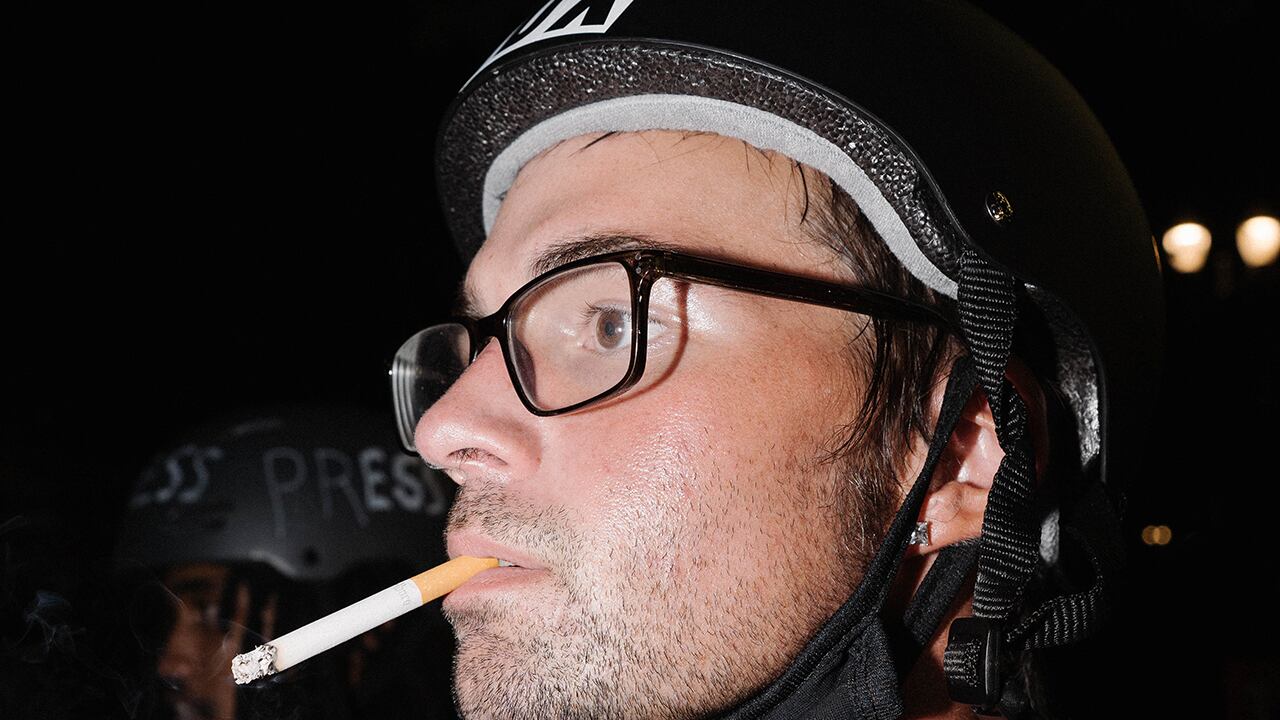Last year, Oregon lawmakers referred a $2-a-pack increase in Oregon's cigarette tax to the November 2020 ballot—and backers of the tax hike started amassing a war chest to fight off the deep-pocketed tobacco industry. Yes for a Healthy Future remains the statewide campaign with the most money.
Big Tobacco? It never showed up.
No committee was formed to oppose Measure 108. No one has spent money to defeat it. With five weeks left until Election Day, it appears the biggest tax increase in Oregon history to the price of a pack of smokes will sail to victory without a fight.
That's part of a pattern for this November.
The four statewide measures all have a lopsided advantage in fundraising over their foes—if opponents exist at all. The result: Oregon could see a range of dramatic changes to its political and legal framework, not to mention more than $100 million in annual revenues from taxing smokers.
BALLOT MEASURE 107
Would amend the Oregon Constitution to allow a cap on campaign contributions. Referred by the Legislature.
Contributions raised to support: $118,332.57
Contributions raised to oppose: $0
Biggest donor: Gov. Kate Brown's political action committee has provided $19,833 in in-kind payments for the salary of "yes" campaign staffers.
Any hurdles left? More than 8 in 10 Oregonians favor the measure, according to the summary of a July poll of 600 likely voters by the D.C.-based firm GBAO, provided to WW by the campaign. "I think we're going to win," says Jason Kafoury, an advocate with the group Honest Elections. "The biggest hurdle is winning with such a large, commanding number that it sends a message to the Legislature and to the corporate powers that don't want campaign finance reform that they need to stand down on this issue." The next fight will be over what the caps are.
BALLOT MEASURE 108
Would increase the tax on tobacco and vaping products. Referred by the Legislature.
Contributions raised to support: $13 million
Contributions raised to oppose: $0. Notably, the tobacco industry failed to provide an argument against in the Voters' Pamphlet.
Biggest donor: Providence Health & Services gave the "yes" campaign nearly $3.3 million last November.
Any hurdles left? "Big Tobacco has the same research we do: Oregonians overwhelmingly support Measure 108 (nearly 70% of Oregonians say they'll vote yes)," says Yes for a Healthy Future spokeswoman Stephanie Vandehey. "That said, they have deep pockets and can come in at any moment."
BALLOT MEASURE 109
Would legalize psilocybin therapy in treatment settings. Referred by initiative petition.
Contributions raised to support:
More than $1.8 million (including for the initiative petition process)
Contributions raised to oppose: $0.
Biggest donor: More than $1 million from New Approach PAC, a D.C.-based political action committee that has worked to legalize cannabis.
Any hurdles left? "Education is the key to our success this November," says Sam Chapman, campaign manager for Yes on 109. The measure can pass, he adds, if enough voters learn "what psilocybin is, what the studies show, and who stands to benefit from having access to a regulated program with strict controls within a therapeutic context."
BALLOT MEASURE 110
Would decriminalize hard drugs and direct funds for addiction treatment. Referred by initiative petition.
Contributions raised to support:
More than $3 million (including for signature gathering)
Contributions raised to oppose: $40,300, including $25,000 in the form of a loan from Portland criminal defense lawyer James O'Rourke
Biggest donors: $2.7 million from the Drug Policy Action, the advocacy arm of a New York-based foundation devoted to legalizing drugs and fighting addiction, and $1 million from the Open Society Policy Center, the group funded by billionaire George Soros.
Any hurdles left? The billions spent on the war on drugs, says Yes on 110 campaign manager Peter Zuckerman. "The war on drugs has created stereotypes and misinformation about people who are addicted to drugs and people who use drugs and made it easy to make it afraid of people who use drugs. Our biggest obstacle is the stigma." But there are notable opponents, including the nonprofit group Oregon Recovers, which has accused the campaign of attempting to dismantle the existing system for addiction treatment before creating a new one.
